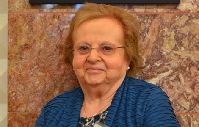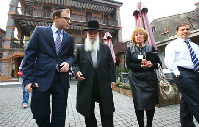Friends and enemies
In the summer of 1945, after his father's death, Long left Yangtang to live with his uncle, a rice-noodle maker, in Guilin. Shortly afterwards, his uncle's shabby wooden house was burnt down by the Kuomintang army, in line with the anti-Japanese "scorched land" strategy that sought to ensure the invading Japanese forces were left with no valuable assets.
His uncle was once nearly beaten to death by Japanese soldiers just because he offered rice noodles to the soldiers, who thought they were poisoned. His real intention was to show his obedience in a bid to protect his family.
"I always felt positive about the future because all Chinese people, including me, were confident that we would win the war against Japan soon. Maoism was like a torch lightening my life, because Mao said the poor people like me should rise up and fight against unfairness in society."
After the Kuomintang were defeated by the Communist Party of China, Long felt he could finally decide on the kind of life that he wanted for himself. It was the "fighting philosophy" of Mao Zedong that became the bedrock of his life.
"The fundamental task of the Chinese revolution is to find out who our enemies are and who our friends are," he said, reciting Mao's words fluently. "The success of our revolution lies in our ability to unite with our friends to fight against our enemies."
In 1950, he was enlisted as a cookhouse squad assistant by the People's Liberation Army and joined a series of actions suppressing local bandits.
"My fearless and aggressive fighting style won me promotion in the army," he said.
Then, in 1953, his unit was transferred to the Democratic People's Republic of Korea to fight in the Korean War.
"I saw a US pilot saved by the folks from my town. Then I was on the way to fight the US army. To convince myself that the war was justified, I told myself again and again that the family name of the pilot from before was Roosevelt, but the US army's family name in the DPRK was Truman. They are different."


















